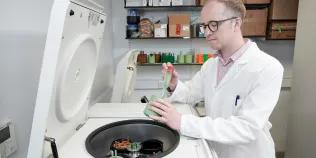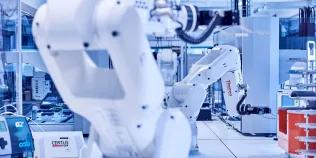The £14 million Carbon-Loop Sustainable Biomanufacturing Hub (C-Loop) will use microorganisms to transform carbon-based waste usually destined for landfill into next-generation materials including pharmaceuticals and cosmetics.
By harnessing the power of engineering biology, C-Loop aims to make the manufacturing of everyday products – more than 90 per cent of which are manufactured from fossil fuels using unsustainable chemical processes – cleaner and part of a circular economy.
Collaborative project
Engineering biology – an area in which the University of Edinburgh is a UK and global leader - involves the application of engineering principles to biological processes to create new materials, treatments and solutions.
The hub will also establish the UK’s first BioFactory, a dedicated platform for waste analysis, sustainability evaluation and scale-up that will cut emissions, reduce landfill and help to build a fossil-free manufacturing base.
C-Loop is one of four UK-wide centres announced by the Engineering and Physical Sciences Research Council (EPSRC), which is providing £11 million of the funding and is part of UK Research and Innovation (UKRI).
It will be led by Professor Stephen Wallace, UKRI Future Leaders Fellow and Chair of Chemical Biotechnology from the University of Edinburgh, in partnership with the Universities of Manchester, Nottingham and Surrey, University College London and Imperial College.
Supported by Edinburgh Innovations, the University’s commercialisation service, more than 40 industry partners are involved in the hub. These include global companies from across seven industry sectors, national innovation centres such as IBioIC and facilities such as the Edinburgh Genome Foundry and Imperial’s BRC Genomics Facility.



